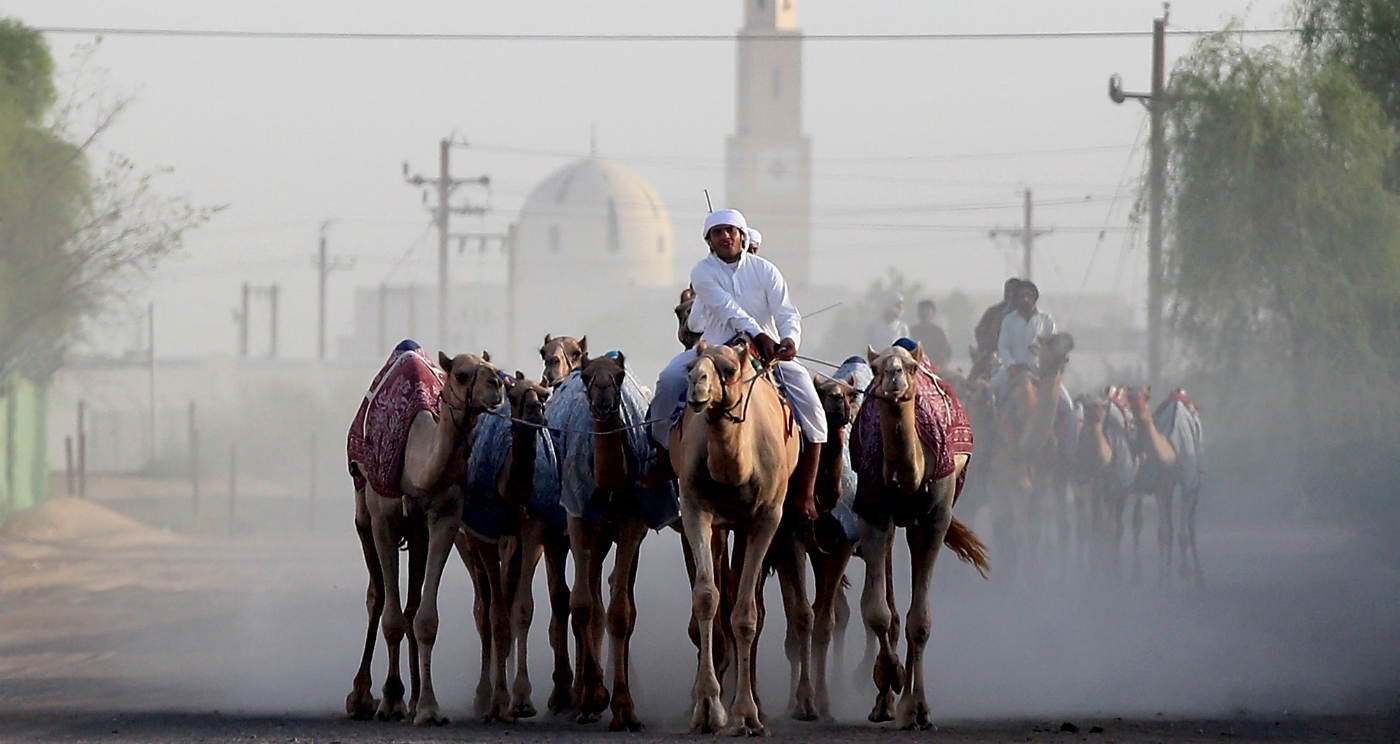Saudis and UAE form exclusive trade and military partnership
Kuwaitis likely to view agreement as ‘offensive’ to their efforts to unite region

A free daily email with the biggest news stories of the day – and the best features from TheWeek.com
You are now subscribed
Your newsletter sign-up was successful
Saudi Arabia and the United Arab Emirate have formed an exclusive trade and military partnership - a move that could antagonise the Gulf Cooperation Council (GCC), which is trying to ease tensions amid a six-month blockade of Qatar.
The UAE foreign ministry said today that the emirates and Saudi Arabia would coordinate military, political, economic, trade and cultural fields. There was no immediate confirmation from Saudi authorities. The two countries already have close military ties in Yemen, where a Saudi-led coalition is fighting Iran-backed rebels.
The UAE announcement came as Arab foreign ministers gathered for a regional summit in Kuwait, their first meeting since June, when Saudi Arabia, the UAE, Egypt and Bahrain severed ties with Qatar, principally over its ties to Iran and approach to terrorism.
The Week
Escape your echo chamber. Get the facts behind the news, plus analysis from multiple perspectives.

Sign up for The Week's Free Newsletters
From our morning news briefing to a weekly Good News Newsletter, get the best of The Week delivered directly to your inbox.
From our morning news briefing to a weekly Good News Newsletter, get the best of The Week delivered directly to your inbox.
“For a decision, or an announcement, like that to happen at the summit is something that will be seen, as far as the Kuwaitis are concerned, as quite frankly offensive to their efforts to try and unite the GCC as a region,” says Al Jazeera’s Jamal Elshayyal.
The GCC - a political and economic alliance grouping Kuwait, Saudi Arabia, the UAE, Qatar, Bahrain and Oman - has been “riven” with divisions since the Qatari blockade began, according to a report by the AFP news agency.
A free daily email with the biggest news stories of the day – and the best features from TheWeek.com
-
 The environmental cost of GLP-1s
The environmental cost of GLP-1sThe explainer Producing the drugs is a dirty process
-
 Greenland’s capital becomes ground zero for the country’s diplomatic straits
Greenland’s capital becomes ground zero for the country’s diplomatic straitsIN THE SPOTLIGHT A flurry of new consular activity in Nuuk shows how important Greenland has become to Europeans’ anxiety about American imperialism
-
 ‘This is something that happens all too often’
‘This is something that happens all too often’Instant Opinion Opinion, comment and editorials of the day
-
 Epstein files topple law CEO, roil UK government
Epstein files topple law CEO, roil UK governmentSpeed Read Peter Mandelson, Britain’s former ambassador to the US, is caught up in the scandal
-
 Iran and US prepare to meet after skirmishes
Iran and US prepare to meet after skirmishesSpeed Read The incident comes amid heightened tensions in the Middle East
-
 EU and India clinch trade pact amid US tariff war
EU and India clinch trade pact amid US tariff warSpeed Read The agreement will slash tariffs on most goods over the next decade
-
 Israel retrieves final hostage’s body from Gaza
Israel retrieves final hostage’s body from GazaSpeed Read The 24-year-old police officer was killed during the initial Hamas attack
-
 China’s Xi targets top general in growing purge
China’s Xi targets top general in growing purgeSpeed Read Zhang Youxia is being investigated over ‘grave violations’ of the law
-
 Panama and Canada are negotiating over a crucial copper mine
Panama and Canada are negotiating over a crucial copper mineIn the Spotlight Panama is set to make a final decision on the mine this summer
-
 Why Greenland’s natural resources are nearly impossible to mine
Why Greenland’s natural resources are nearly impossible to mineThe Explainer The country’s natural landscape makes the task extremely difficult
-
 Iran cuts internet as protests escalate
Iran cuts internet as protests escalateSpeed Reada Government buildings across the country have been set on fire